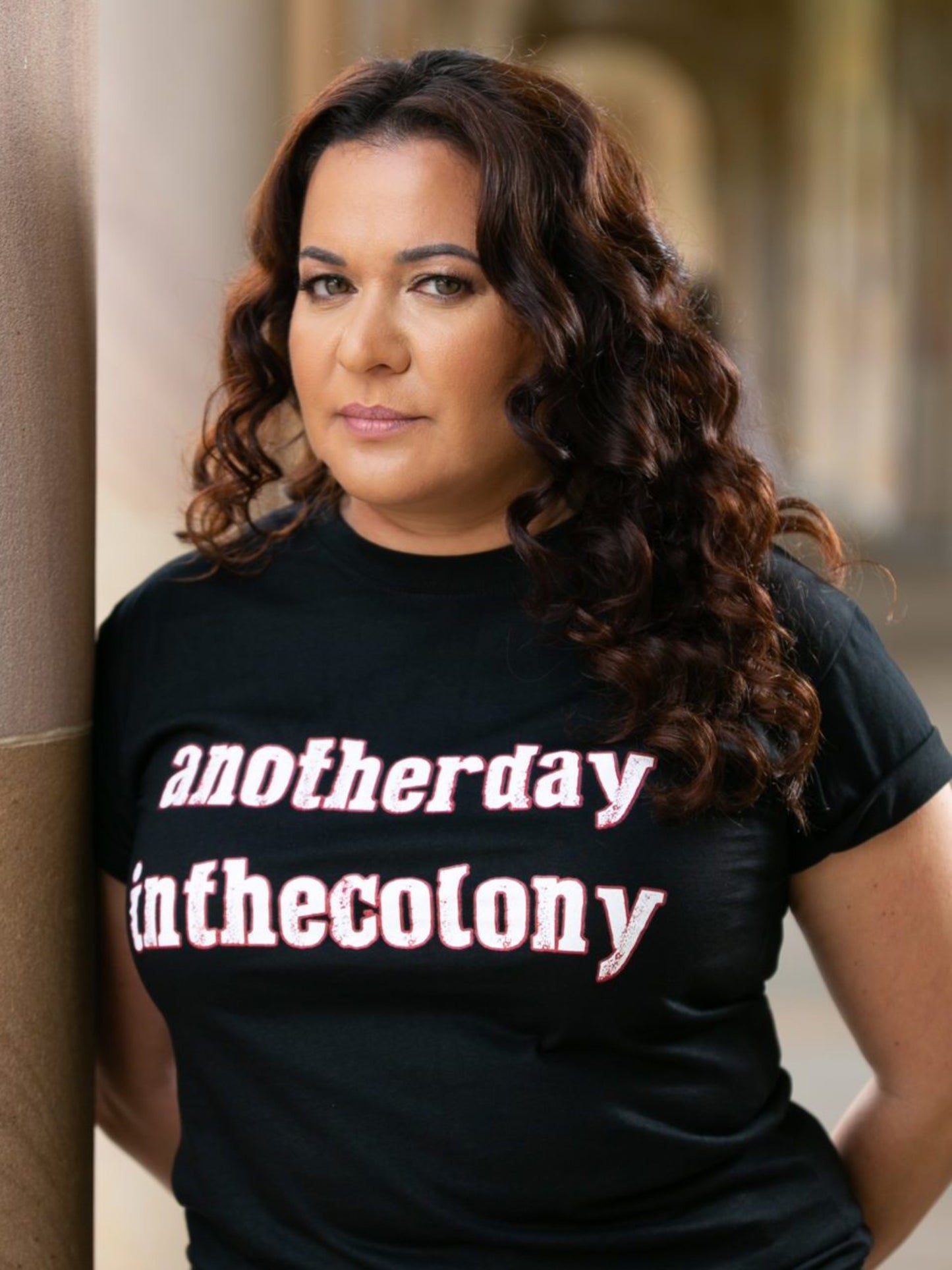Chelsea Watego, Another Day In The Colony
Chelsea Watego, Another Day In The Colony
Couldn't load pickup availability
In this collection of deeply insightful and powerful essays, Chelsea Watego examines the ongoing and daily racism faced by First Nations peoples in so-called Australia. Rather than offer yet another account of ‘the Aboriginal problem’, she theorises a strategy for living in a society that has only ever imagined Indigenous peoples as destined to die out.
Drawing on her own experiences and observations of the operations of the colony, she exposes the lies that settlers tell about Indigenous people. In refusing such stories, Chelsea narrates her own: fierce, personal, sometimes funny, sometimes anguished. She speaks not of fighting back but of standing her ground against colonialism in academia, in court and in the media. It’s a stance that takes its toll on relationships, career prospects and even the body.
Yet when told to have hope, Watego’s response rings clear: Fuck hope. Be sovereign.
Chelsea Watego is a Munanjahli and South Sea Islander woman born and raised on Yuggera country. First trained as an Aboriginal health worker, she is an Indigenist health humanities scholar, prolific writer and public intellectual. When not referred to as ‘Vern and Elaine’s baby’, she is also Kihi, Maya, Eliakim, Vernon and George’s mum. In 2022, Chelsea's groundbreaking work, Another Day in the Colony was longlisted for the Stella Prize.
‘Chelsea Watego has delivered a work that is part anthem, part love story. In a series of essays about the difficult – often backbreaking – labour involved in surviving the colonial logics and systems that determine everyday life in Australia, Watego refuses to pander to the needs of readers who aren’t Aboriginal. It is unapologetically written for her community. Watego’s descriptions of the institutional and physical violence Aboriginal people are forced to endure in contemporary Australia are clear, urgent, and white hot with rage. At the same time, her portraits of moments with family, community, and ancestors are tender, vulnerable, and joyous. Watego creates a Black intellectual republic through her words. Indeed, this assertion of independence is the foundation upon which her work rests. In marking out this space, free from the gaze of white Australia and the systems it has created, Another Day in the Colony creates its own borders and in this way it is brave, and free.’ Judges comments, The Stella Prize
Share




